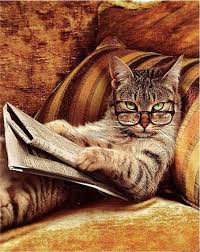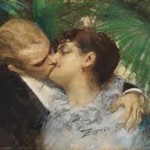 One of the basic questions I like to ask fiction writers is, “What genre is your work?” By that, I mean, where in the bookstore or on the shelf could readers locate your book? If you take more than a half-second to answer, maybe you should take time to classify your book as closely as you can.
One of the basic questions I like to ask fiction writers is, “What genre is your work?” By that, I mean, where in the bookstore or on the shelf could readers locate your book? If you take more than a half-second to answer, maybe you should take time to classify your book as closely as you can.
Writing Tip for Today: Here are some tips for understanding your novel’s genre:
Choose Your Category
But, you say, my book doesn’t fall neatly into a category! It’s part mystery, part romance, part this or that. Your book could be all of those things and it could even be a breakout bestseller—eventually. Yet readers can’t buy a book they’ve not heard about or somehow seen. Instead of bristling at attempts to classify your genre-bending novel, think of it as an extra boost in marketing. Readers who love mysteries but are longing for one with a big love angle as well as space travel and fantasy elements might actually find your work if you classify it in the genre which most closely matches the story. You’ll have to decide: is your novel a romance with touches of mystery, sci-fi and fantasy, or is it a mystery where your character takes a spaceship to a medieval fantasy and falls in love?
Choose Your Reader
To narrow your genre-pick even further, ask yourself, “Who is my typical reader?” The first image you conjure is usually going to be that ideal reader. If your novel is full of adventure, battles, war or tech-stuff and the love story is incidental, it might be best placed in a male-dominated reader category, say Action-Adventure. If it’s mostly about the girl getting the guy, maybe lean toward Romance. I’m not saying that both sexes won’t enjoy your book, but at least walk toward the biggest and most loyal crowd in terms of what your story is all about. And as long as you’re choosing readers, go after real readers—the ones on your social feeds, the ones who can’t wait until your book comes out and are willing to shell out $13.99. If the beta readers or your groupies give you feedback that they wish there were more romantic scenes, or conversely, they tell you to cut down all the mushy stuff, you’ll have a better idea of the readers you are attracting. Please these readers, for they will be loyal—as long as your story resonates with them.
Choose Your Poison
A single novel rarely pleases every reader. Oh, you can try—throw in elements of fantasy, murder, romance and sci-fi, literary fiction, women’s fiction, YA fiction and even Grandma Fiction (that last one’s for me!). Yet in the end, the success or failure of your fiction may hinge on how well your readers believe you’ve written their preferences into your plot. Like the soup that contains everything except the kitchen sink, writing a mixture of too many genres can be risky to do well. Instead of trying to sell your readers a muddy story crammed with elements of too many genres, help readers love your story by allowing one genre to claim the category, even if other genres are in the mix too. By claiming a spot on the bookstore shelf, you’ll help readers locate your work, and combined with your writerly skills, love it. At least the bookstore clerk will know where to direct your potential readers when they ask for a sci-fi fantasy romantic mystery. (wink, wink). And when people ask, you’ll know exactly in what genre your novel falls.




